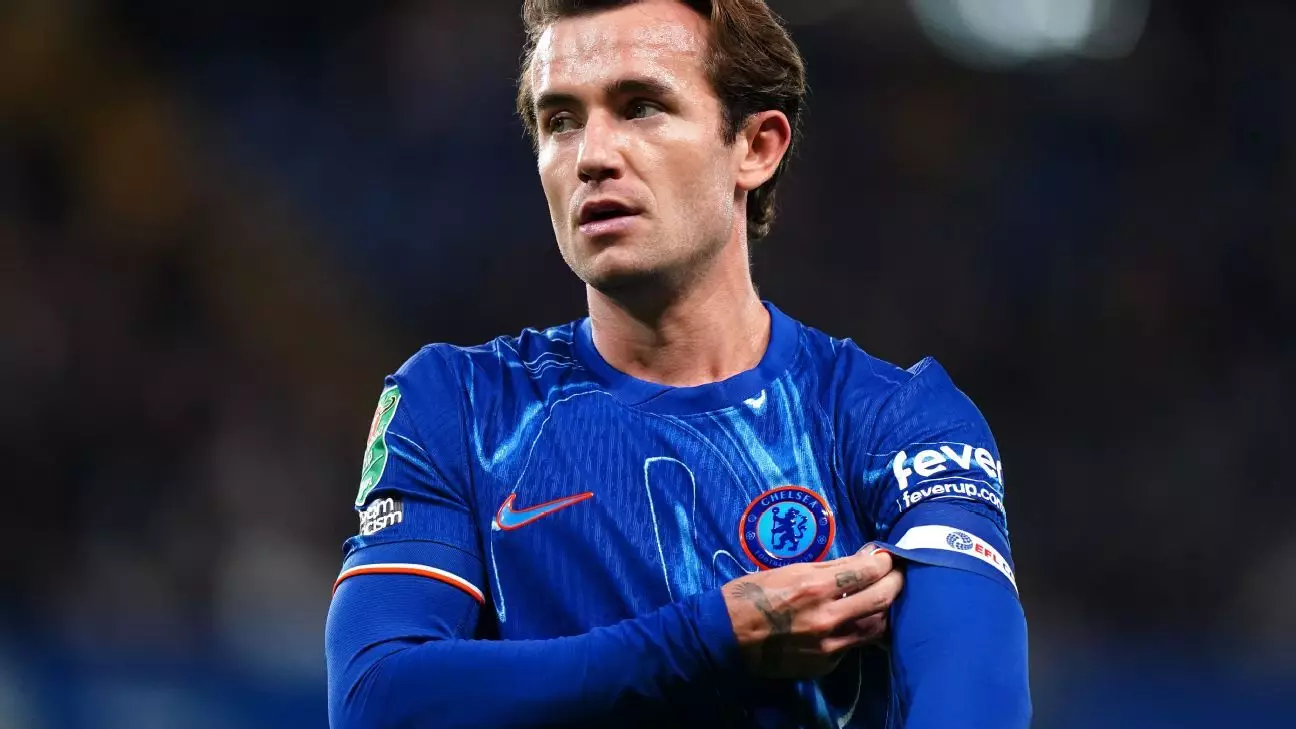Enzo Maresca, the current head coach of Chelsea, has publicly addressed a concerning situation regarding defender Ben Chilwell. In a candid moment, Maresca expressed feelings of “shame” regarding the limited playing time afforded to the accomplished full-back. Despite demonstrating outstanding performance over his tenure at the club, featuring consistently for four years prior to Maresca’s arrival, Chilwell has inexplicably found himself sidelined with just one appearance in the Carabao Cup this season. The juxtaposition of his past successes against his current plight raises questions about the managerial decisions at Chelsea.
Maresca’s rationale for Chilwell’s exclusion delves into a deeper analysis of tactical preferences and player roles within the team. Notably, the Argentine coach specified that the exclusion stems from his strategic vision for the squad. He voiced his belief that players like Malo Gusto, Reece James, and Marc Cucurella offer various attributes that align closely with his tactical ideology. This stance draws attention not only to the individual capabilities of these players but also highlights the impact of management philosophy on player selection. Chilwell, despite being deemed a “top full-back,” seems constrained by a system that values versatility over traditional roles, making one ponder the future of established players in modern football.
Maresca’s sentiments about Chilwell’s professionalism serve as both a compliment and an acknowledgment of an undercurrent of disappointment felt by players who thrive on consistent opportunities. As players desire active participation to maintain form and morale, the risk of transfer speculation grows. The statement that Chilwell might seek an exit reflects a broader trend where players, irrespective of their talent, could find themselves at a crossroads when their contributions are diminished. This calls for a sensitive balance from management to ensure player satisfaction while adhering to strategic visions.
The context of these discussions is further amplified by Chelsea’s off-form performance, having gone five games without a win in the Premier League. As they prepare to host Bournemouth, the pressure mounts on Maresca to find solutions—both in managing player assets like Chilwell and improving the team’s league standing. A prolonged lack of victories may jeopardize not only individual player morale but the cohesion of the squad as a whole. In this scenario, mismatches between player’s skills and managers’ tactics could lead to amplified discontent among a squad that boasts considerable talent.
As the January transfer window approaches, the discussions around player retention take on heightened significance. Not only are the futures of Chilwell and young defender Renato Veiga in question, but also the implications for Maresca’s longer-term strategy at Chelsea. With the acknowledgment of a player longing for position certainty, especially one who has recently represented his national team, clarity on roles and tactical preferences speaks volumes on the necessity of aligned communication between management and players. The coming weeks will prove crucial for Chelsea as they seek to navigate both internal dynamics and external challenges in a competitive Premier League landscape.


Leave a Reply